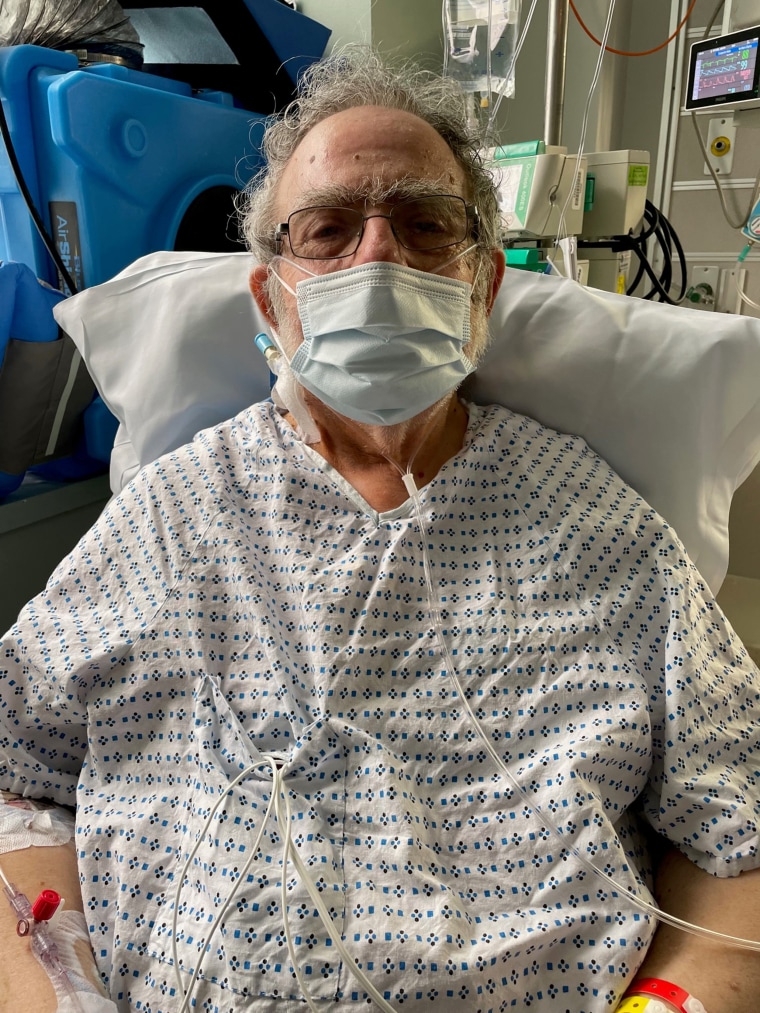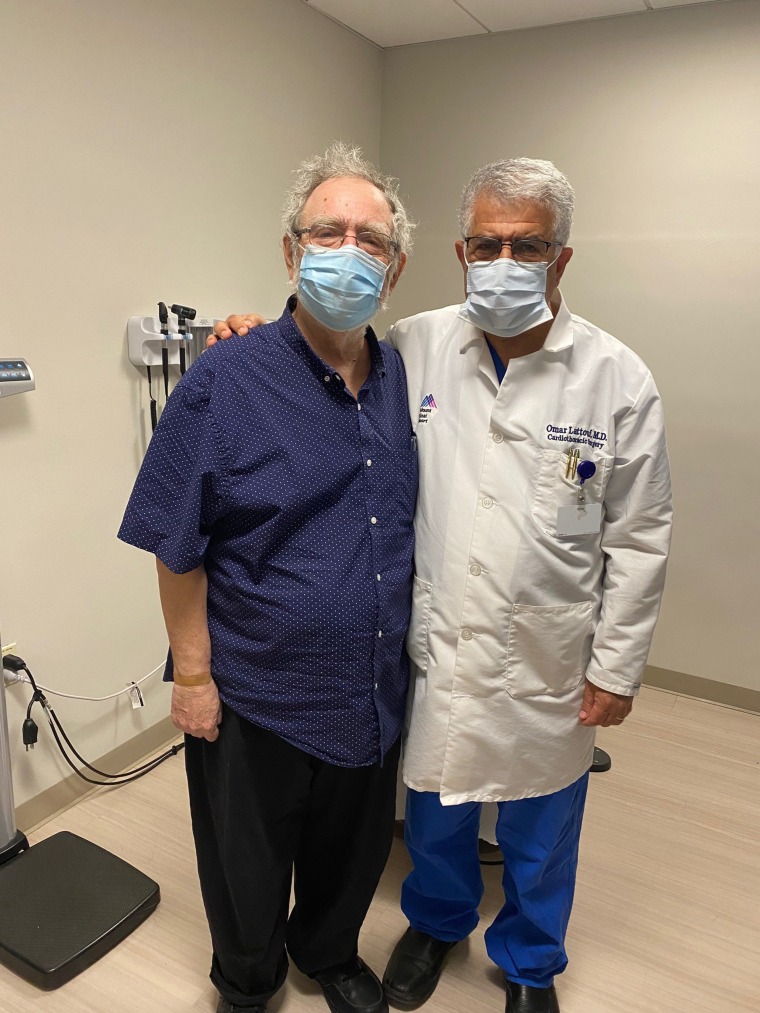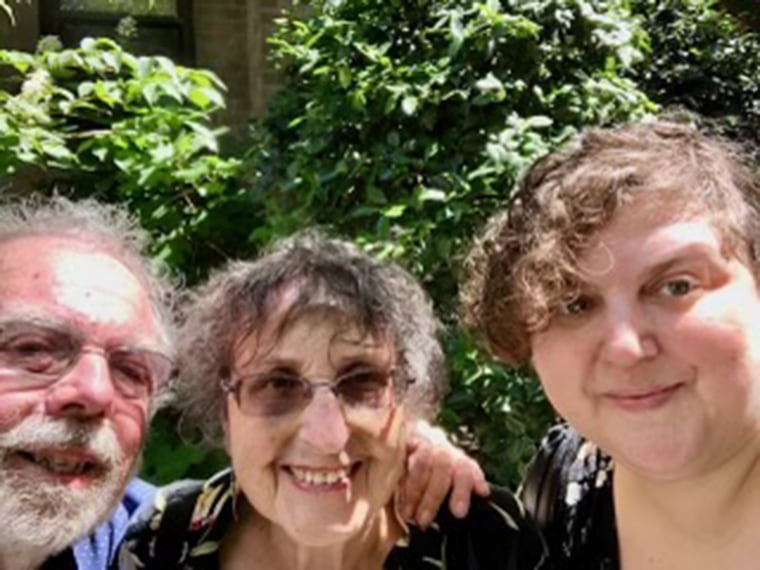Mervyn Rothstein loves walking through New York City, covering at least three miles each day. In March, he started experiencing shortness of breath during his walks so he reached out to his doctor. After being hospitalized for a bowel obstruction, he returned home and a week later almost fainted after taking a few steps. An ambulance rushed him to the hospital where he learned the cause of his lightheadedness.
“The doctor told me I’ve got this blood clot, this huge pulmonary embolism. I wasn’t even aware how big it was,” Rothstein, 78, a former "New York Times" writer and editor, told TODAY. “I have to tell you being 78-years-old, things happen.”
A hernia, bowel obstruction and pulmonary embolism
For years, Rothstein had a watermelon-sized hernia, which his doctors observed. It didn’t cause him any pain or problems so he decided not to undergo the elective surgical repair.

“It’s big. I have been very fortunate that it doesn’t bother me,” Rothstein said. “A couple of other doctors in the past have said, ‘You know if it doesn’t bother you, you don’t need to do anything about it.’”Then in March 2022, he struggled with breathing. He visited his doctor and underwent tests and he learned that he had a bowel obstruction. While in the hospital for almost four days, doctors snaked a tube down his nose to clear the obstruction. A week after his hospital stay, he walked 20 feet in his apartment and almost passed out. When he got up again, he nearly fainted a second time.
“I said, ‘Is this an anomaly?’ So I got up and I walked another 20 feet and when it happened again, I said, ‘This is not an anomaly and this is dangerous,’” Rothstein recalled. “So I called out to my wife, ‘Please call an ambulance.’”
When the EMTs arrived, they gave Rothstein oxygen and took him to the hospital.
“The EMTs were giving me oxygen and then checked the oximeter and saw even with oxygen my oximeter reading was only in the mid 80s,” he said. “They knew something was going on.”
Doctors rushed him to get a CT scan and discovered what caused the low oxygen levels — a large pulmonary embolism, essentially a blood clot that blocks an artery in the lung. Then doctors transferred him to Mount Sinai Morningside, where he met cardiovascular surgeon Dr. Omar Lattouf.
“They told me it was a massive pulmonary embolism. And Dr. Lattouf told me he is an expert at this, but anything could happen. You can’t control everything in operating. And he said, ‘Do you want to go through with open heart surgery,’” Rothstein said. “What choice did I have? But I had faith in him.”
Removing the pulmonary embolism
Surgery was needed to remove the large clots impacting Rothstein’s health.
“He had a very large clot in the artery going from his right ventricle into the pulmonary artery and the branches and his heart were not working hardly much at all,” Lattouf told TODAY. “His arteries were blocked with huge clots about 18 inches long.”

The clots caused extra strain on his right ventricle and prevented blood flow from “his right heart to the lungs to get rid of the carbon dioxide, pick up the oxygen, go to the left side of the heart and to distribute to the rest of the body.”
During his four-day hospital stay while being treated for the bowel obstruction, Rothstein was sedentary. His lack of movement could have contributed to the pulmonary embolism, Lattouf said.
“Probably during that period he developed the clots in his legs, which ultimately moved,” Lattouf said. “Quite often we see patients who have had operations, hip fracture, ankle fracture, who develop clots in their lower extremities because patients tend to become sedentary.”
Lattouf removed the clots and felt pleased by how quickly Rothstein recovered.
“He did very, very, very well and I’m so happy with him,” Lattouf said. “He made just a tremendous, quick recovery.”
Life after surgery
After his 12 day hospital stay following surgery, Rothstein slowly built up his endurance. It felt difficult at first as he was recovering from open heart surgery. For the most part he’s walking his baseline three miles a day.
“Some days, I make it to four,” he said. “They had said that it takes three months to fully recover and it’s been three and a half months.”
He estimates that he’s “90 to 95% himself” and plans to have his hernia repaired in the fall. He hopes his story encourages people who might be wary of seeing a doctor when something feels wrong.
“No matter what the situation is medically that they may experience— don’t ignore it. Do something about it,” he said. Something that seems that it could be serious, don’t hesitate to do something about it whether it’s calling an ambulance or calling your doctor or whatever works for you. Don’t just sit there.”

He’s grateful that he acted quickly and that Lattouf and the staff at Mount Sinai treated his embolism, which allowed him to celebrate his 50th wedding anniversary with wife, Ruth on June 25.
“There are so many people who are dying at this age — that’s what happens,” he said. “Anything can happen at any second and you need to appreciate every second and I knew that before but because of my age I know even more.”